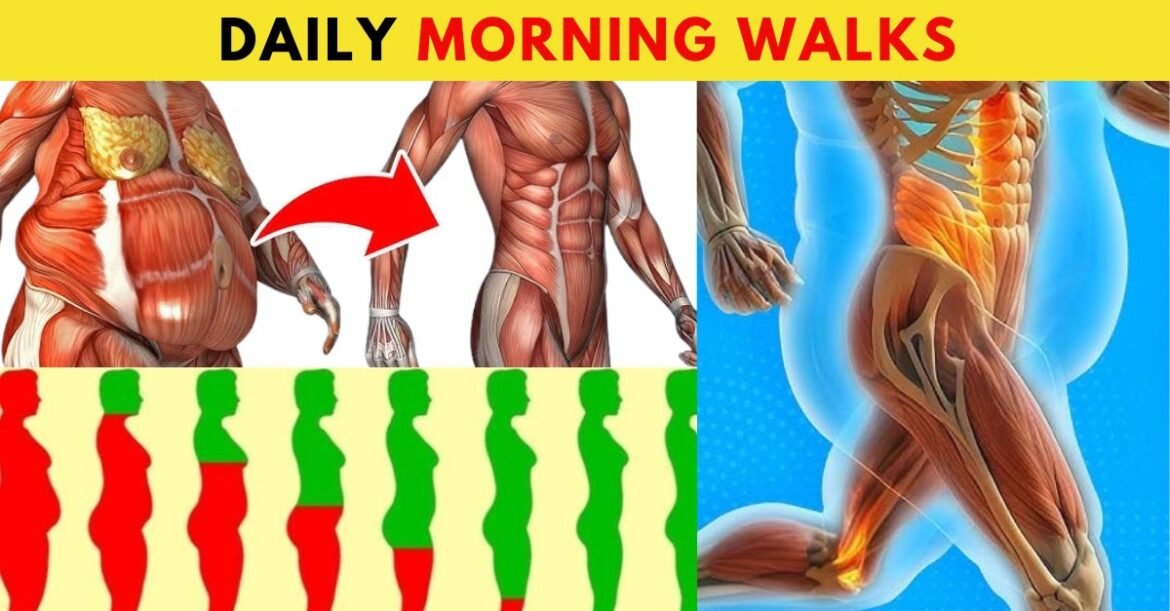People widely understand the benefits of regular exercise and the positive impact it has on our emotional, physical, and mental health. But, with busy schedules, many struggle to find time to exercise. Thankfully, recent research shows that dedicating just 15 minutes to walking each day can have similar benefits to longer workouts. This simple habit can add years to your life and bring incredible health benefits.
According to Sanjay Sharma, professor of inherited cardiac diseases in sports cardiology at St. George’s University Hospitals NHS Foundation Trust in London:
“We may never avoid becoming completely old, but we may delay the time we become old. We may look younger when we’re 70 and may live into our nineties. Exercise buys you three to seven additional years of life. It is an antidepressant, it improves cognitive function, and there is now evidence that it may retard the onset of dementia.”
Research from Harvard has also shed light on walking’s benefits for cardiovascular health:
- Walking nine miles per week resulted in a 22% lower death rate.
- Walking for 30 minutes daily led to an 18% reduced risk of coronary artery disease.
- Walking for three hours per week was associated with a 35% lower risk of cardiovascular death and heart attacks, as well as a 34% reduced risk of stroke.
Here are some health benefits of 15 minutes of daily walking:
1. Lowers Risk of Diabetes
Harvard’s Nurses’ Health Study found that women who walked for 30 minutes daily had a 30% lower risk of developing diabetes. Walking can help reduce abdominal fat, a known risk factor for diabetes.
2. Reduces Alzheimer’s Risk
A study from the University of Virginia Health System found that men between the ages of 71 and 93 who walked more than a quarter of a mile each day had half the incidence of Alzheimer’s disease and dementia compared to those who walked less.
3. Lowers Blood Pressure
Moderate walking has been shown to reduce high blood pressure, contributing to overall cardiovascular health.
4. Aids Digestion
Walking can improve gastric mobility, which aids digestion and helps with issues like bloating.
5. Reduces Pain and Improves Mobility
According to the American Heart Association, daily walking can improve mobility, particularly in people with peripheral artery disease (PAD).
6. Strengthens Bones
Exercise, including regular walking, strengthens bones and helps prevent osteoporosis, fractures, and spine shrinkage.
7. Boosts Cognitive Performance
Studies have shown that regular walking enhances cognitive function in both children and adults.
8. Increases Longevity
Multiple studies have linked regular walking with a lower risk of mortality.
9. Improves Mood
A 2016 study revealed that just 20 minutes of walking daily improved self-confidence, attentiveness, and reduced anger and hostility.
Tips for Walking Effectively
- Set a Good Pace: Aim to walk about 3.5 miles per hour for a good calorie burn.
- Try Incline Walking: This can help burn more calories.
- Choose Proper Shoes: Comfortable, cushioned shoes make a big difference.
- Posture Matters: Walk with your shoulders relaxed, chin parallel to the ground, and eyes looking forward. Swing your arms to increase calorie burn.
See also: 82-Year-Old Woman Reverses Dementia Symptoms with This Simple Diet Change
Small Changes to Increase Walking
Incorporate walking into your day by making these small changes:
- Take the stairs instead of the elevator.
- Walk to work or school when possible.
- Go for a short walk after meals with friends.
- Get off a few bus stops early and walk the rest of the way.
- Choose a further parking spot to increase steps.
- Consider “walk-and-talk” meetings.
- Walk your dog or listen to a podcast while walking.
Bonus: Benefits of Barefoot Walking
A practice known as “grounding,” or barefoot walking, has been linked to numerous health benefits. Walking barefoot on grass or sand allows the body to absorb free electrons from the Earth, which some researchers believe may have antioxidant effects. According to a review published in the Journal of Environmental and Public Health, grounding has been linked to improvements in several areas:
- Sleep disturbances
- Muscle and joint pain
- Respiratory conditions
- Stress
- Blood glucose levels
Tracking your daily steps using a pedometer or fitness tracker can be motivating and help you reach your goals. Just 15 minutes of walking a day might seem minor, but it has major health benefits that add up quickly.





